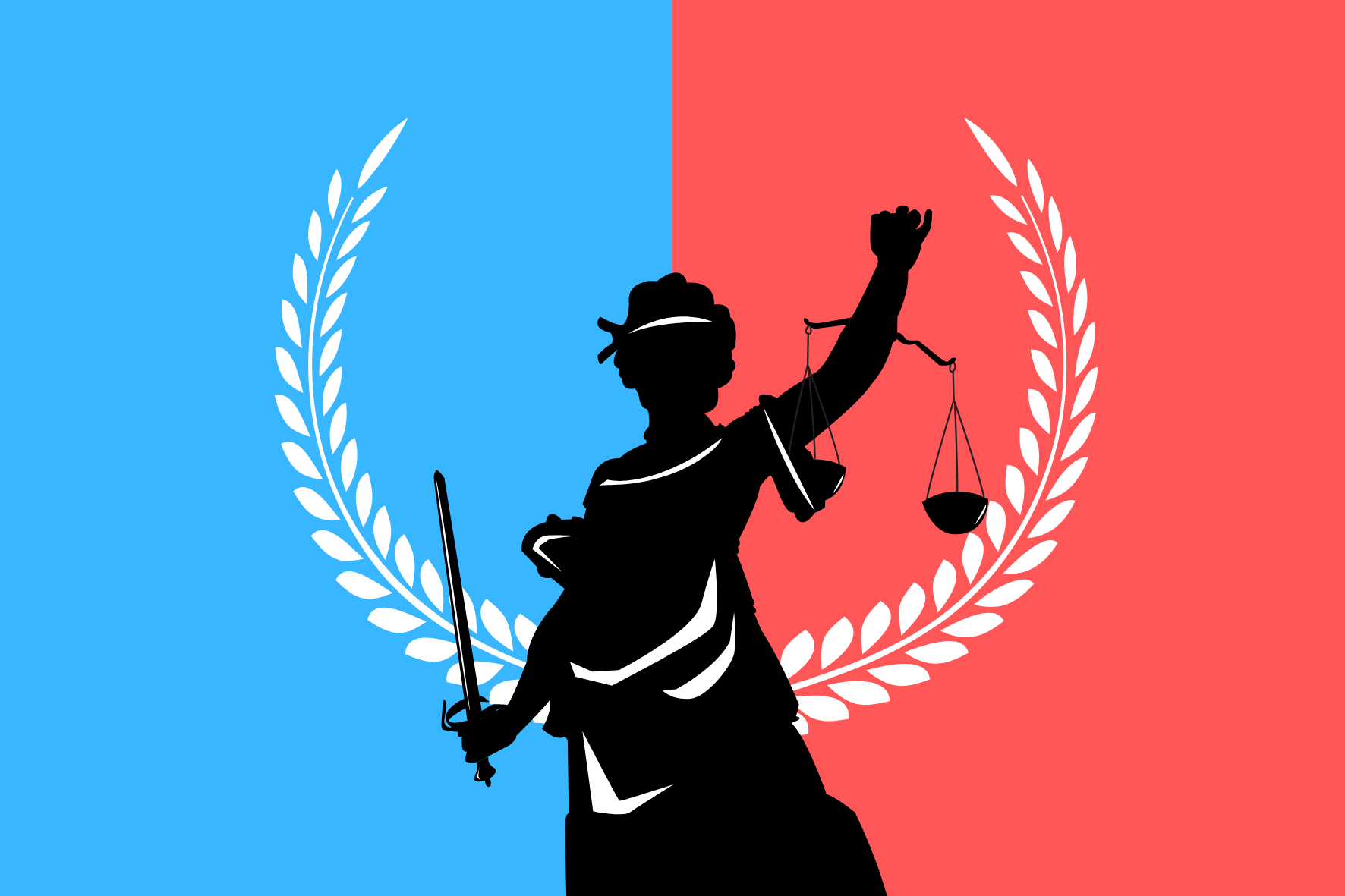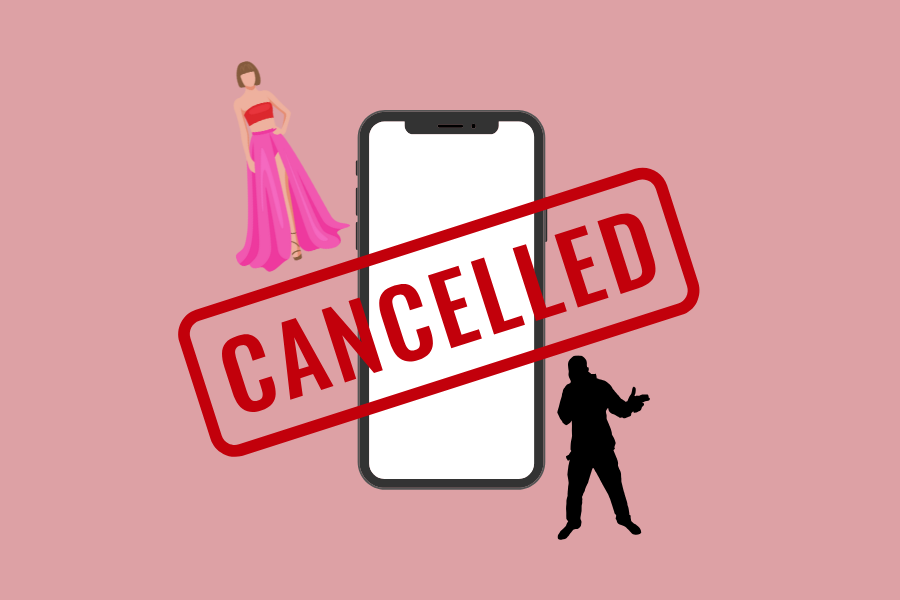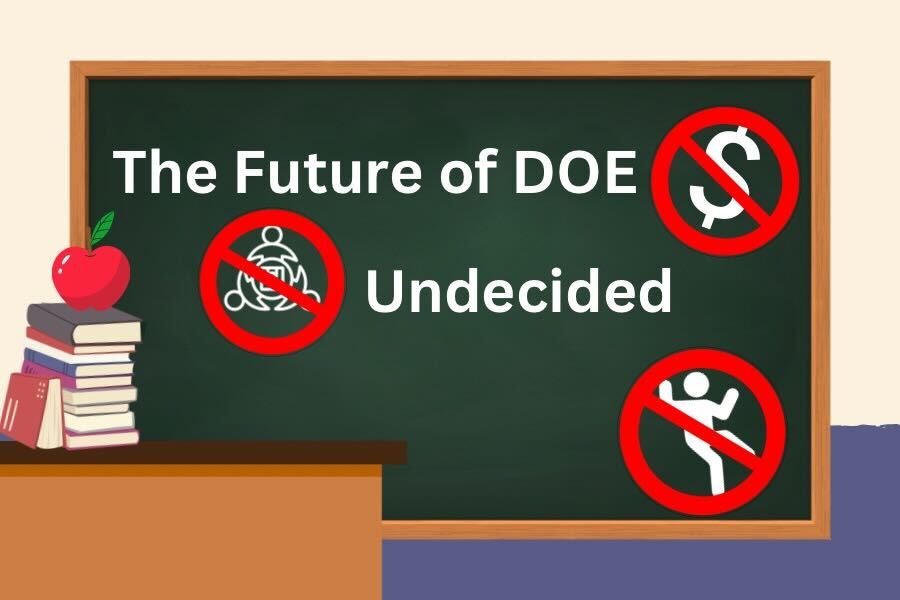Justice is blind, but the nation’s highest court is not. The judicial foundation of our country has begun to split through politics, and it is no more apparent than in the new rulings of Chevron deference and presidential immunity. With just two 6-3 verdicts on partisan lines, the Republican Justices have created an earthquake across the legal world, with the resulting tsunami of legal implications and administrative aftershocks still not quite felt across the country.
While the effects of Chevron and presidential immunity are yet to be seen, the impact of the court’s increasingly political nature is clear: it is eroding our faith in democracy.
The growing political division in our country is no longer a hypothesis, it is laid out in plain sight. There is no example more perfect than our two parties being unable to even agree on the state of our country.
In the views of most Republicans, there has become a new branch of government: bureaucracy. Since the Chevron ruling of 1984 which allowed for government administrations to assume powers that were previously left ambiguous, the influence of regulatory agencies has rapidly expanded. Whether that is the Environmental Protection Agency’s increased fines and regulation on the fossil fuel industry, the National Security Association’s mass surveillance programs in 2013, or the Internal Revenue Service’s one-sided scrutiny of conservative political groups, Republicans feel warranted in their worry of big government. In their eyes, the status quo of America is one where big government’s embrace has smothered its citizens, and the only path forward is to reduce its strength.
Meanwhile, Democrats perceive the power of agencies to be more crucial than ever before. Since 1984, 19,000 cases in federal court where legal power was ambiguous were decided with Chevron, with the overwhelming power agencies gained being not a bug, but a necessary feature. Thus, the two sides begin to clash. If you put on the lenses of a Democrat, with world crises like global warming upon us, the EPA needs more power to regulate polluters than ever; with increased threats abroad and domestically, NSA’s surveillance is crucial; and with the rise of political extremism and malfeasance, the IRS should have the right to scrutinize. When big government embraces Americans, Democrats believe citizens should respond with gratitude.
It should be no surprise that now Democrats are ringing the alarm bells on how agencies are suddenly weakened. The overturning of Chevron deference will allot the ambiguous powers over to the courts to handle. Contradictions are bound to emerge. With the power to define the ambiguous, the lower courts comprised of 850 ideologically diverse judges are bound to make conflicting decisions, with more conservative judges possibly curbing the power of certain agencies while more liberal judges do the exact opposite. Law should be objective and consistent, Americans can’t help but feel it won’t be.
Chevron is not a new tale; the debate about big versus small government has been within the two parties’ blood for centuries. What is making the country’s blood boil is the politicized undertones just hiding beneath the surface of these rulings. While some publications still portray the Supreme Court as the one government branch free of the influence of political parties, this is far from the case. Actions speak louder than words, and in a detailed review of each individual Justice’s judicial decisions, their rulings follow clear political lines. This politicization has not escaped Americans, with FiveThirtyEight, a nonpartisan polling organization, observing that the current Supreme Court has an approval rating of 36%, the lowest of the 21st century.
No matter if Chevron’s attempt at reducing bureaucracy and the power of agencies succeeds or not, there will be unintended consequences. The distrust Americans have of their government only continues to grow, there is a very real credibility gap, of a size that hasn’t been present since the Vietnam War. When the public doesn’t trust their rulers, the entire rule collapses. Civic action from local volunteering to voting plummets, a rise in protests and violence becomes imminent, and above all, the first step to a nation’s collapse is taken.
We live in a time the United States Studies Center quantifies as the most politically divided we have been since the end of the Civil War, for the courts to make even one ruling that is politically loaded just months before the election is playing with fire. Unfortunately, the court didn’t just make one ruling, they had two.
July 1st’s presidential immunity case did not happen out of nowhere, it was a brew consisting of Democrats’ and Republicans’ hubris alike. On one end of the aisle, Manhattan’s District believed that prosecuting former President Donald Trump and putting him behind bars would bar the man from office. He was wrong. The only force that can do that is the people. The rise of prosecutions against Trump seemed like Democrat’s perfect attack against the former President, but it has only motivated Republicans. After every court hearing, every prosecution, and every conviction, Trump’s campaign receives more funding, more time in the news, and more support. Even at the nation’s highest court.
In Chief Justice John Roberts’ opinion on the immunity ruling, he stated that no person should be hounded by legal lawsuits and attacks, in a clear reference to the current predicament Trump is in. Yet, in a vacuum, both sides can acknowledge the argument has merit. A politician should have the right to advocate for their beliefs and ideas on behalf of their constituents without fear that the other party will strip them of their savings, image, or freedom.
Republican Justice Barrett sought a middle ground in the Presidential immunity case, compromising with the three Democrats to create a potentially unanimous ruling guaranteeing presidential candidates a more narrow range of protections.
Roberts, however, ruled for presidential immunity from not just legal or financial wrongdoing, but any action within his conclusive or preclusive presidential authority, a term so broad that legal experts have concluded enables the current President to even order the assassination of rivals without repercussion. Even if the action will likely never happen, the mere perception of it can make the skin of any individual crawl.
Over time, this case will not be portrayed as a win for Republicans, nor will it be a win for Democrats. It will be a loss for both parties. The new ruling on presidential immunity will ensure that politicization only continues to grow so that no matter which party is in the White House, and the legal checks and balances that prevented radical actions like inciting insurrection will be a thing of the past.
Chevron is gone, presidential immunity is solidified, and the politicization of the courts is exposed. While the conservative party has succeeded in pushing the country towards its values, both parties pay a price. Every Supreme Court ruling on partisan lines shakes the very confidence Americans have in our democracy. Even if the Supreme Court feels as distant to the American public as the sea floor is to land, an earthquake at the bottom of the ocean still creates tsunamis that can envelop an entire nation.
Justices aren’t blind. Neither are Americans.
















